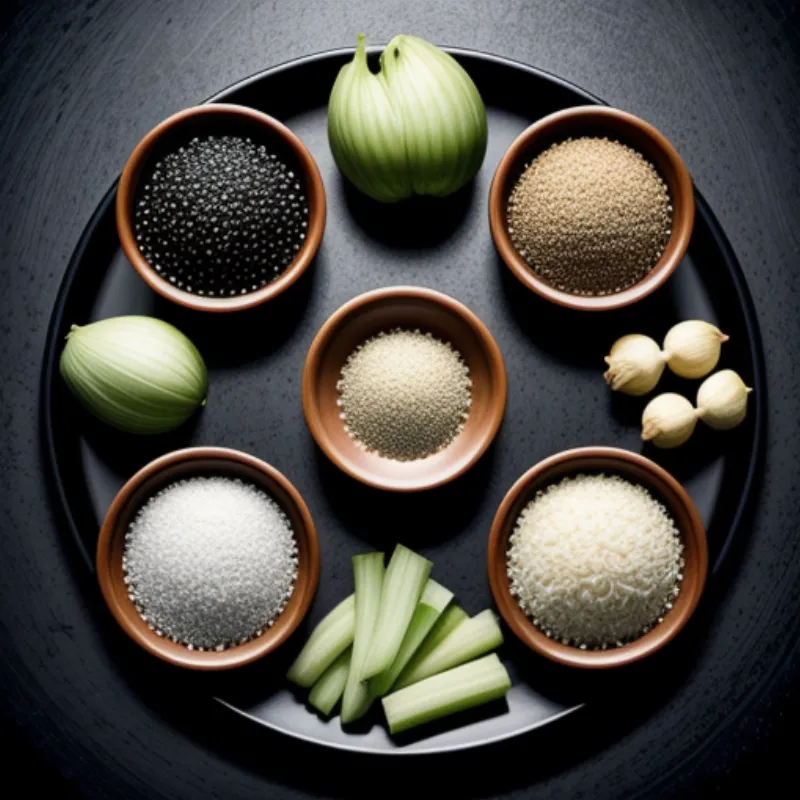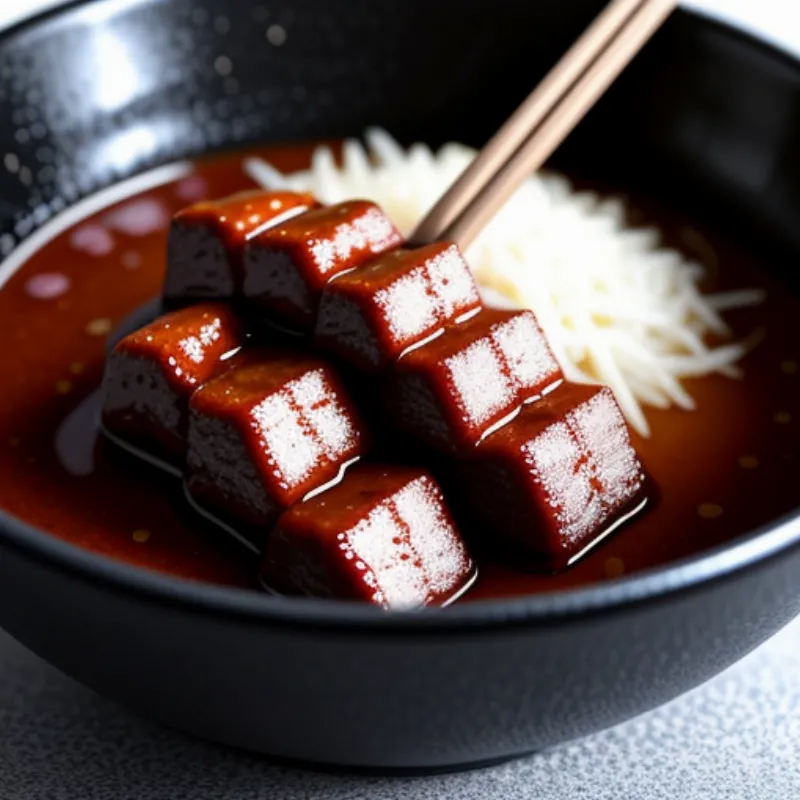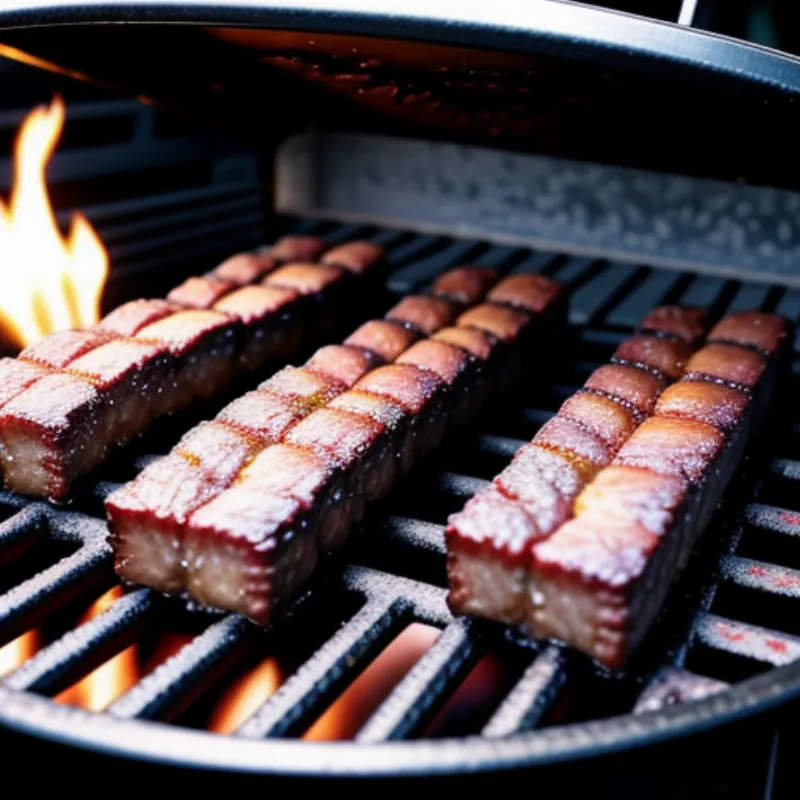Galbi sauce, also known as bulgogi sauce, is the heart and soul of Korean barbecue. This deliciously savory, slightly sweet, and umami-packed sauce transforms ordinary grilled meats into a flavor-packed culinary adventure. If you’ve ever enjoyed the irresistible aroma and taste of Korean BBQ, you know it’s all about the sauce. Today, I’m excited to share my family recipe so you can recreate this iconic sauce in your own kitchen!
Unveiling the Magic of Galbi Sauce
Traditional Galbi sauce boasts a unique blend of sweet, savory, and umami flavors. The base usually includes soy sauce, garlic, ginger, and sugar, but the real magic lies in the subtle variations and additional ingredients. Some recipes call for pear, apple, or even kiwi for natural sweetness and tenderizing properties. Others might incorporate sesame oil for a nutty depth, gochujang (Korean chili paste) for a hint of spice, or doenjang (Korean soybean paste) for a more pronounced umami kick.
No matter the variations, a good Galbi sauce should be balanced, flavorful, and enhance the taste of your grilled meats without overpowering them.
 Ingredients for Korean Galbi Sauce
Ingredients for Korean Galbi Sauce
Homemade Galbi Sauce: A Step-by-Step Guide
This recipe will guide you through creating a classic Galbi sauce that’s perfect for marinating short ribs (galbi) or any other cut of meat you prefer.
Ingredients:
Main Ingredients:
- 1/2 cup soy sauce
- 1/4 cup brown sugar (You can adjust this based on your sweetness preference)
- 1/4 cup water
- 1/4 cup finely chopped yellow onion
- 2 tablespoons minced garlic (about 4 cloves)
- 1 tablespoon minced ginger
- 1 ripe Korean pear, grated (or substitute with 1/4 cup apple juice or water)
Flavor Enhancers:
- 1 tablespoon sesame oil
- 1 tablespoon toasted sesame seeds
- 1 teaspoon black pepper
Optional Ingredients:
- 1-2 tablespoons gochujang (Korean chili paste) for a spicy kick
- 1 teaspoon doenjang (Korean soybean paste) for a richer umami flavor
Equipment:
- Blender or food processor
- Mixing bowl
- Whisk
- Airtight container for storage
Instructions:
- Combine and Blend: In a blender or food processor, combine all the ingredients (soy sauce, brown sugar, water, onion, garlic, ginger, pear, sesame oil, sesame seeds, and black pepper).
- Blend Until Smooth: Pulse the ingredients until you achieve a smooth and well-combined sauce.
- Taste and Adjust: Give your sauce a taste and adjust the sweetness, saltiness, or spiciness according to your preference. If you’d like a spicier sauce, add 1-2 tablespoons of gochujang. For a richer umami flavor, stir in 1 teaspoon of doenjang.
- Marinate Your Meat: This recipe makes enough marinade for about 2 pounds of meat. Place your chosen meat in a resealable bag or container, pour the sauce over it, and ensure the meat is well coated.
- Refrigerate and Marinate: Let the meat marinate in the refrigerator for at least 4 hours, or ideally overnight, for maximum flavor absorption.
- Grill and Enjoy: When you’re ready to cook, remove the meat from the marinade and grill it to your liking.
Tips and Tricks:
- For a Thicker Sauce: If you prefer a thicker sauce, you can simmer it on low heat for a few minutes after blending. However, be sure to let it cool completely before using it to marinate the meat.
- Make it Your Own: Feel free to experiment with different ingredients like pineapple juice, honey, or even a splash of rice wine to personalize the flavor.
- Double the Recipe: This sauce is incredibly versatile, so feel free to double the recipe and keep some on hand for future use.
 Korean Style BBQ Sauce
Korean Style BBQ Sauce
Serving and Enjoying Your Galbi Masterpiece:
While Galbi sauce is traditionally used for marinating and grilling short ribs, it’s incredibly versatile. Here are some serving suggestions:
- Classic Korean BBQ: Serve your galbi-marinated meat with steamed rice, lettuce wraps, kimchi, and various Korean side dishes (banchan) for an authentic experience.
- Galbi Bowls: Create delicious and easy rice bowls topped with grilled galbi meat, your favorite vegetables, a fried egg, and a drizzle of extra Galbi sauce.
- Galbi Tacos: Think outside the box and use the marinated meat to make Korean-inspired tacos with kimchi slaw, pickled onions, and a dollop of sriracha mayo.
Storage Tips:
Store any leftover Galbi sauce in an airtight container in the refrigerator for up to a week.
Frequently Asked Questions about Galbi Sauce:
Can I use store-bought Galbi sauce?
Absolutely! However, making it from scratch allows you to control the ingredients and customize the flavors to your liking.
What kind of pear is best for Galbi sauce?
Korean pears, also known as Asian pears, are ideal for their sweetness and texture. However, you can substitute them with regular pears, apples, or even apple juice if needed.
Can I freeze Galbi sauce?
Yes, you can freeze leftover Galbi sauce in ice cube trays or a freezer-safe container for up to 3 months.
 Korean BBQ Short Ribs
Korean BBQ Short Ribs
A Taste of Korea in Your Own Kitchen
Making Galbi sauce at home is easier than you might think, and the reward is a taste of authentic Korean BBQ that will impress your friends and family. So gather your ingredients, fire up the grill, and get ready for a flavor-packed culinary journey to the heart of Korea!
